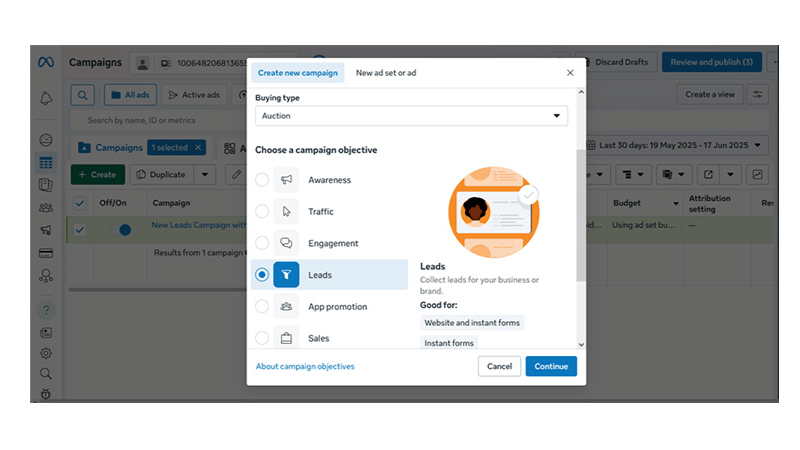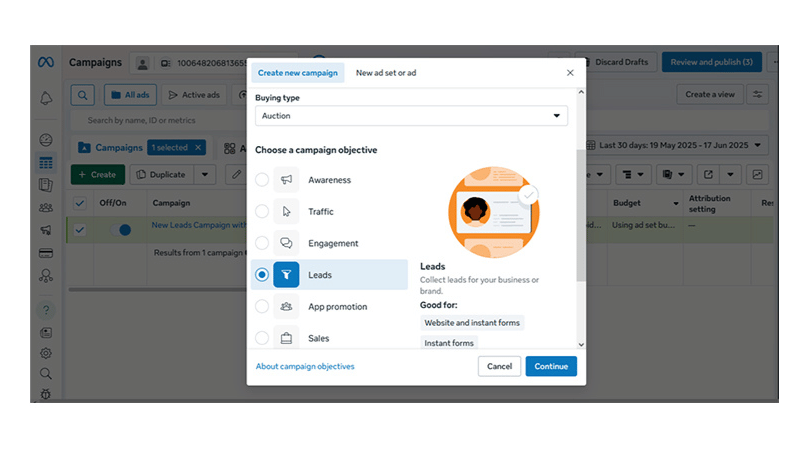If you are running Facebook ads for real estate leads, you surely understand the feeling of being both excited to find new leads and anxious about Facebook flagging your account. Since Meta tightened its grip on Facebook ads for real estate leads by placing them in a special ad category, marketers have been forced to be extremely cautious in every setup step to avoid violations. This article will help you understand how Facebook controls content, how to set up a campaign for proper compliance, and provide a series of strategies to maintain high performance without having your account restricted.
How does Facebook control real estate advertising?
When targeting customers who buy, sell, or rent real estate, Facebook is not only concerned with ad effectiveness but also emphasizes the factors of fairness and transparency. Therefore, the platform has established a separate control mechanism to ensure that campaigns in the real estate sector do not violate anti-discrimination regulations. To understand how this system operates, you must first grasp the nature of the Special Ad Category, followed by how Meta identifies real estate-related content and the actions that often cause ads to be flagged.

What is the special ad category, and why does it exist?
The special ad category is a group of ads related to sensitive topics such as credit, employment, and real estate. Facebook created this category to restrict targeting based on personal factors like age, gender, residential area, or marital status.
For real estate ads, this helps prevent users from being excluded or prioritized based on demographic information. This mechanism ensures that all audiences have the opportunity to access information about homeownership, rentals, or investments without discrimination. When a campaign falls into the Special Ad Category, the advertiser must adhere to a separate set of rules, and the targeting options will also be limited.
How Meta identifies real estate content in ads
Meta’s system uses Artificial Intelligence (AI) to scan and analyze all ad content. The text, images, and even the landing page link are evaluated. If the content contains keywords such as “house for sale,” “apartment,” “real estate,” “for rent,” or images that describe property, the ad will automatically be categorized as real estate-related.
In addition to content scanning, Meta also reviews the behavior of the ad account. If the account frequently posts about real estate or links to a brokerage website, the system will default to classifying it as a real estate campaign and apply a more rigorous review mechanism.
Actions that cause ads to be easily flagged for Violation
Some common mistakes that cause ads to be flagged include:
- Selecting the wrong special ad category or failing to enable the category when creating the campaign
- Targeting an area too precisely, such as a small radius around a specific address
- Using content that suggests prioritizing a certain audience group
- Inserting words easily misunderstood as discriminatory, such as luxury clients or area for young families
These violations can lead to an ad rejection or reduce the trustworthiness of the account. Therefore, a clear understanding of the policy and adherence from the setup phase is a deciding factor for real estate campaigns to operate stably and sustainably.
Setting up Meta-compliant real estate campaigns
For real estate ads to be reviewed quickly and run steadily, the correct setup from the start is mandatory. Facebook evaluates not only the content but also the entire setup process, from selecting the Special Ad Category to setting up targeting. A Meta-compliant campaign will help the account maintain a high trust score, reducing the risk of being banned or flagged as risky. Start with the most important step: activating the correct Special Ad Category immediately upon campaign creation.

How to enable the special ad category correctly from the start
The special ad categories appear right at the initial step of creating a campaign in Ads Manager. If the ad is related to housing, rentals, apartment sales, or real estate investment, you must select Housing in the special ad categories section.
Once the special ad categories are enabled, Facebook will automatically adjust the targeting options and restrict certain personal factors. Enabling the correct category from the start has three main benefits:
- Avoiding rejection due to non-compliance with real estate policy.
- Helping the ad get approved faster thanks to the algorithm’s clear content identification.
- Increasing the trustworthiness of the ad account and associated Facebook page.
If the category is not selected, Meta may automatically scan the content and flag it, causing the campaign to be paused for manual review.
Mandatory valid targeting rules to follow

After enabling the special ad category, the targeting capability will be more limited than for regular ads. Meta only allows targeting based on neutral, non-discriminatory factors. The rules that must be followed include:
- Do not target by age, gender, or specific ZIP code.
- Only target by a minimum geographical radius of 15km.
- Prioritize criteria based on behavior, interests, or files of audiences who have engaged with the Fanpage.
- Can use automatic audience expansion to allow Meta more flexible distribution.
The effective targeting strategy is to combine remarketing from those who have engaged, along with interest groups related to investing, home buying, or financial services. This approach is both policy-compliant and maintains lead quality.
Common setup errors that cause ad rejection
Even with basic compliance, many marketers still make technical errors that cause ads to be rejected. The most common errors include:
- Failing to select the special ad category or selecting the wrong theme group.
- Using ad content with suggestive elements that discriminate by region or group of people.
- Selecting a geographical radius that is too narrow or targeting too specifically.
- Inserting images or captions containing personalized information, such as income or marital status.
When these errors occur, the ad will be rejected and display a notification of a housing policy violation. If repeated multiple times, the account may have its advertising privileges restricted.
How to adjust if the category was set incorrectly
If you discover that you created a campaign without enabling the special ad category, the best approach is to edit it rather than trying to continue running it. Go to the campaign settings, select the special ad category section, and turn on Housing. Then, review all content to ensure there are no sensitive keywords or personal factors.
In case the ad has already been rejected, you can submit a request for review. Meta will rescan the content after you update the category and adjust the targeting. Once the system confirms the ad is valid, the campaign will automatically be approved and relaunched.
Executing the setup process correctly and meticulously checking every detail will help the real estate campaign not only be safe but also maintain stable performance in the long run. This is a crucial foundation for building a sustainable advertising system, ensuring quality leads, and optimizing the cost for each campaign.